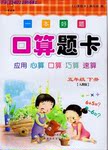题目内容
Not until we saw the manager did we know that the bank ________the company for the purpose of reducing its borrowings.
A. took part in B. caused damage to
C. put pressure on D. drew attention to
练习册系列答案
 一本好题口算题卡系列答案
一本好题口算题卡系列答案
相关题目
题目内容
Not until we saw the manager did we know that the bank ________the company for the purpose of reducing its borrowings.
A. took part in B. caused damage to
C. put pressure on D. drew attention to
 一本好题口算题卡系列答案
一本好题口算题卡系列答案